Created May 2, 2024
Welcome to this week’s Bill Harvey Blog.
I’m sharing my IndieReader interview with you, my Pebbles readers, as it reveals the motivations behind my latest book, The Great Being, and the other books in the Agents of Cosmic Intelligence series. My editor says The Great Being is my best novel so far and reviewers seem to agree, with IndieReader giving it 4.2 stars and including it in their “Best Books of the Month” listing for April.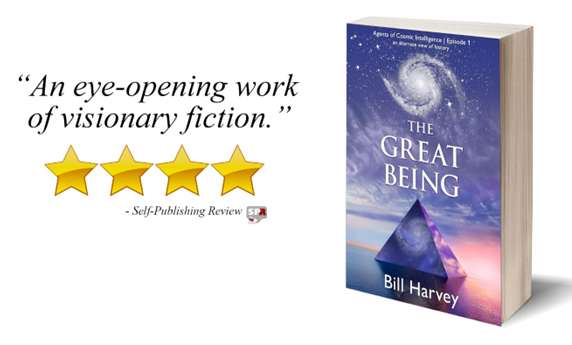
“FOLLOW YOUR INTUITION AND DON’T EDIT UNTIL LATER.
LET IT FLOW AND ENJOY THE PROCESS.” — Bill

The Great Being received a 4+ star review, making it an IndieReader Approved title.
Below you will find IndieReader’s full interview with me.
“What is the name of the book and when was it published?
The Great Being. March 1, 2024
What’s the book’s first line?
[Circa 14 Billion BCE]
The Nothingness felt surprise upon realizing itself.
What’s the book about? Give us the “pitch”.
The Great Being combines science fiction and alternative history to tell a story about how the universe might have started, with a single Consciousness, and how that Consciousness could have created all of us out of Itself.
Episode 1 in the Agents of Cosmic Intelligence series, The Great Being chronicles from the beginning of the Multiverse through Melchizedek’s teaching of Abraham. A Great Rebellion is going on in Heaven and therefore throughout the Universe, all of which is a single Mind at play. The Rebels have taken their final stand on Earth. Two Agents of Cosmic Intelligence, Melchizedek and Layla, are dispatched to infiltrate the Rebels on Earth. However, the Rebels have interfered with evolution on Earth, so that the human brains the Agents step into suppress knowledge of their true identities. They lose track of their Mission, getting sidetracked into identifying with the human bodies they inhabit while on Earth.
What inspired you to write the book? A particular person? An event?
I had a sense of spiritual realization that came about as a result of a long history of amazing hunches in my life—which helped me innovate and invent things, get patents and an Emmy and other awards—and people often called me a media visionary and a futurist. I felt very strongly a desire to share my potentially scientific and perhaps accurate view of reality. I wrote nonfiction books and articles about it, and then I decided to create a series of novels, which in my dreams will become movies someday. The Great Being is where the whole saga of the series Agents of Cosmic Intelligence begins.
What’s the main reason someone should really read this book?
I hope it’s for their enjoyment and possibly the expansion of their consciousness in that they sense the story might be a clue as to what is actually going on here on Earth. Ideally, they’ll feel a new excitement about life, which I have felt ever since realizing that we might all be a single Consciousness.
What’s the most distinctive thing about the main character? Who—real or fictional—would you say the character reminds you of?
The main character starts out as The Great Being, HisandHerSelf. Then the storyline follows two of the avatars created by The Great Being, Melchizedek and Layla. The most distinctive thing about The Great Being is that HeSheUs is, for all intents and purposes, God, and has the familiar Godlike qualities of love, compassion, honesty, egolessness, nobility, and nurturing. The most distinctive thing about Melchizedek is, to me, his humility, despite being one of the very first avatars in the universe. The most distinctive thing about Layla is that she is extremely playful for a genius—kind of reminds me of Einstein in that way.
When did you first decide to become an author?
At four years old, I wrote a vignette about a man who invents an injection that can transfer his consciousness into other things. He finds himself in the body of the cat and has to jump on the hypodermic needle to get out of the cat. He moves his consciousness into various things and eventually becomes the planet Earth itself. The second trumpet player in my father’s orchestra told me I was destined to be a writer, which was the first thing anyone told me about my future that made me happy. I decided to become that thing, whatever it meant, wherever it would take me.

Mind Magic: 1st edition cover
Is this the first book you’ve written?
I’ve been writing my ideas and drafts for books since I was sixteen. I published my first book, Mind Magic: The Science of Microcosmology (original subtitle), in 1976. I now have seven books published, four fiction and three nonfiction.
What do you do for work when you’re not writing?
I’m a media research consultant, well-known in the industry.
How much time do you generally spend on your writing?
Not enough, probably about 30 hours a week. Some of that is business writing. Each year, I plan to spend more time writing, and I am following that plan.
What’s the best and the hardest part of being an indie?
The best part is having total control of the content (with my trusted editor) and cover design. The hardest part is getting into bookstores.
What’s a great piece of advice that you can share with fellow indie authors?
Follow your intuition and don’t edit until later. Let it flow and enjoy the process. Don’t have any expectations as to making money or becoming famous, do the writing for its own sake because it expresses who you are. Stendahl had been dead a hundred years before he was discovered and added to the list of the world’s greatest novelists.
Would you go traditional if a publisher came calling? If so, why?
To get into bookstores—but it would largely depend on the publisher and their vision for my work.
Is there something in particular that motivates you (fame? fortune?)
Helping people see the upside possibilities for their own lives, not just the downside ones.
Which writer, living or dead, do you most admire?
William Shakespeare.
Which book do you wish you could have written?
Neal Stephenson’s Baroque Trilogy. Neal lists Philip K. Dick, William Gibson, and Thomas Pynchon as among his influencers, and they are also among mine. My list also includes F. Scott Fitzgerald, Robert A. Heinlein, and many other amazing writers and thinkers too numerous to mention.“
You can read a free chapter, read reviews, and more when you visit
THE GREAT BEING webpage.
All my best,
![]()

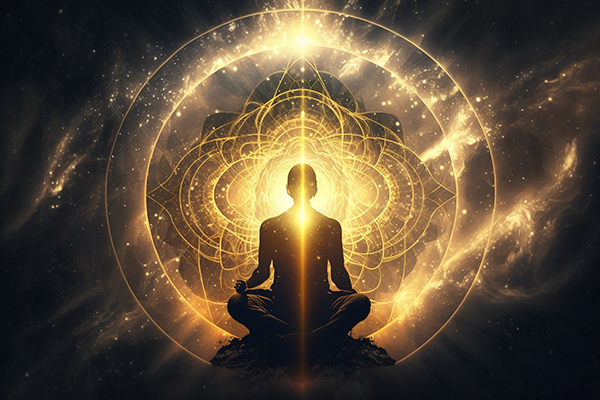
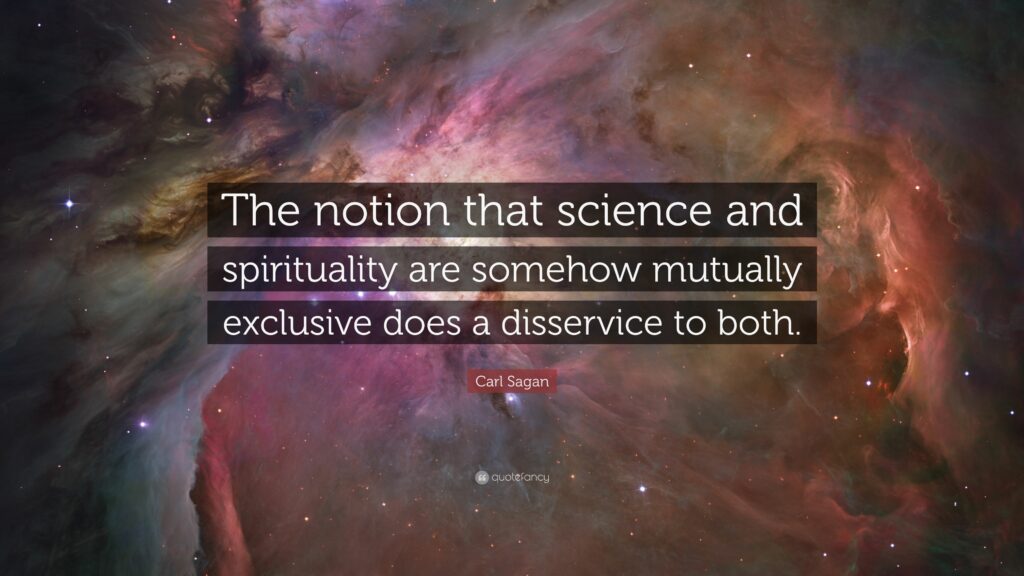
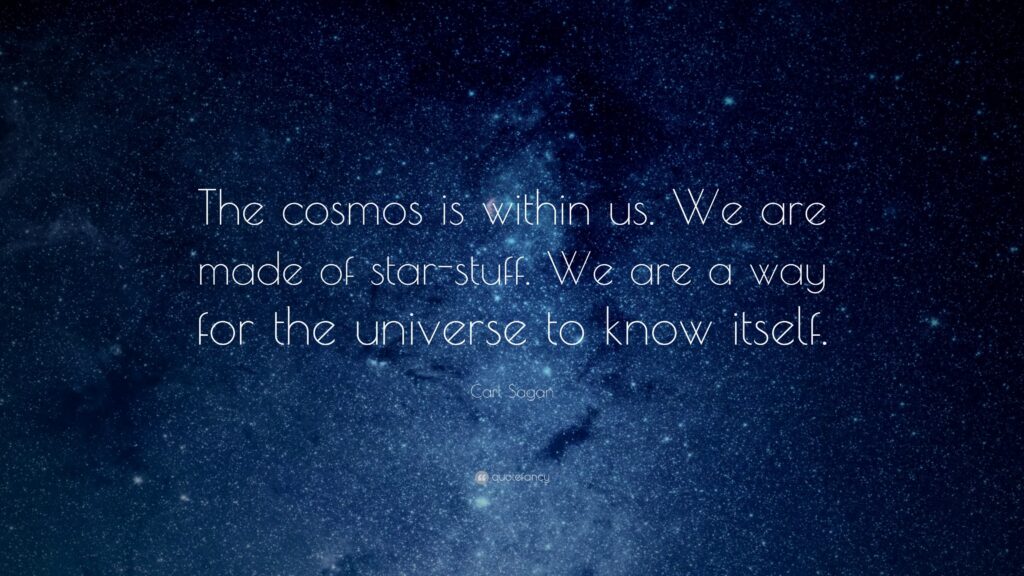
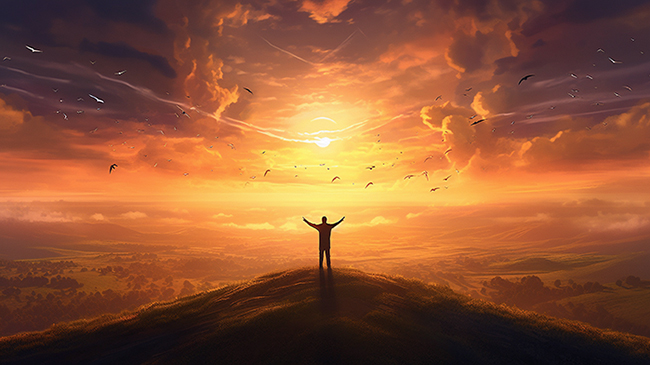 These are the times that test what we’ve got. Each of us…
These are the times that test what we’ve got. Each of us…